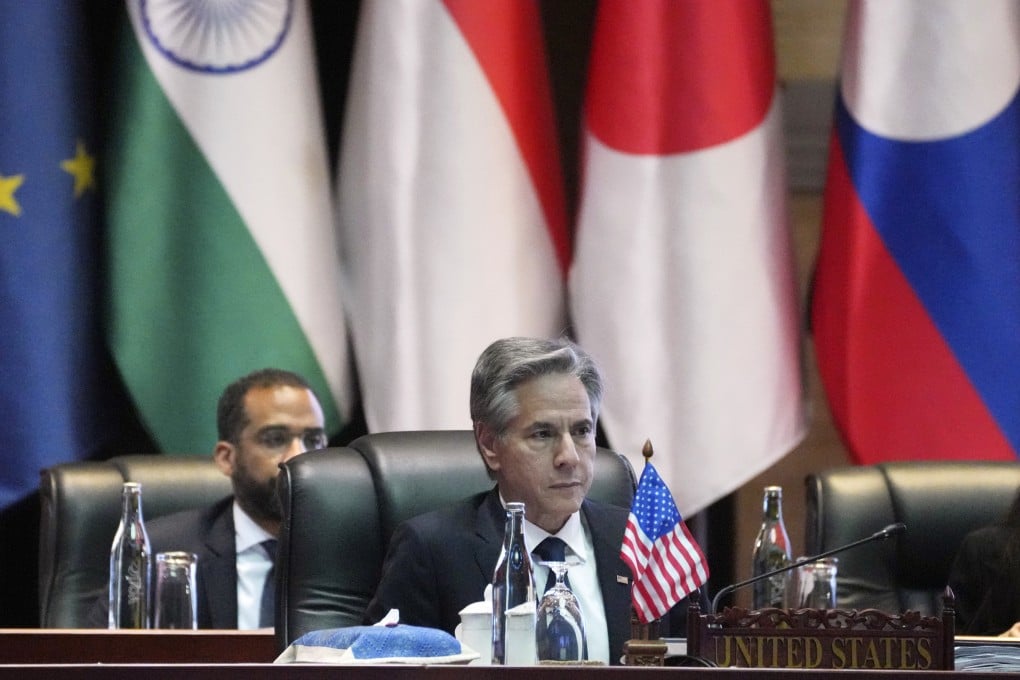Advertisement
Blinken’s Asia trip a boost for bilateral ties, reinforces stance in South China Sea row: analysts
- Trip seen as continuity of US foreign policy, but analysts say more insight needed into engagement with rest of Asia ‘as a good in itself’
Reading Time:4 minutes
Why you can trust SCMP
12

US Secretary of State Antony Blinken’s recent visit to the Asia-Pacific region focused on strengthening bilateral ties with key countries and reinforcing a collective stance against China’s actions in the South China Sea, analysts have said.
While tangible outcomes of the trip were more pronounced in East Asia, experts said key allies in Southeast Asia were strategically prioritised.
Tan See Seng, research adviser at the Singapore-based S. Rajaratnam School of International Studies (RSIS), said Blinken’s choice to visit the Philippines, Singapore and Vietnam – all countries previously visited by US Vice-President Kamala Harris – was a continuation of President Joe Biden’s “emphasis on practical bilateral ties, rather than multilateral diplomacy with Asean”.
“His priority remains strengthening bilateral ties with selected Southeast Asia states that the US deems important to its strategy to counter China,” Tan said.
Blinken’s visit from July 25 to August 3 also took him to Laos, Mongolia and Japan. Most of the concrete outcomes occurred during his time in Tokyo.

During the Japan-US Security Consultative Committee, known as the “2+2” security talks on July 28, Washington and Tokyo agreed to further bolster military cooperation by upgrading the command and control of American forces in the East Asian country.
Advertisement
